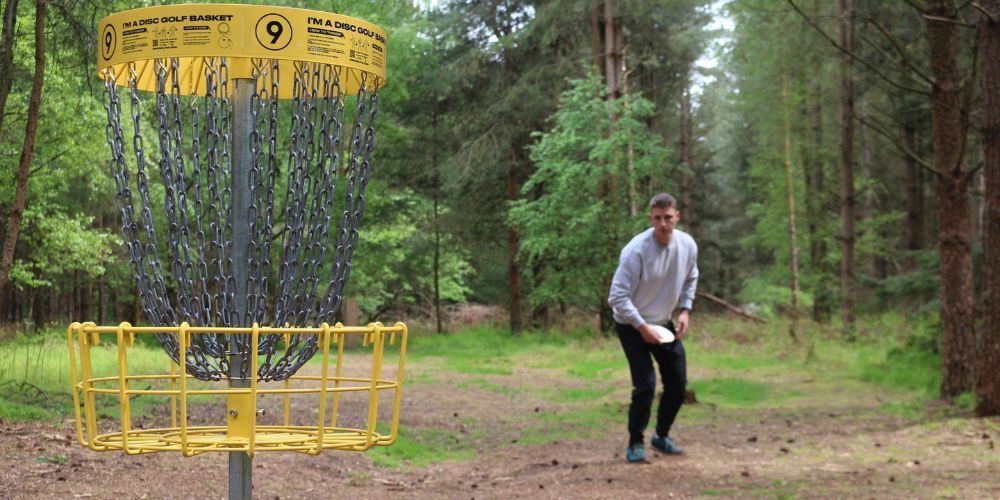The Health and Social Benefits of Playing Golf: Improve Your Well-being and Connect with Others
August 13, 2024
Golf isn't just about hitting a ball; it's about transforming your health and social life. Imagine adding up to 5 miles of walking each game session while engaging muscles all over your body—even those you rarely think about. Moreover, according to Harvard Health, regular golfers often see improvements in heart health and lower blood pressure.
Yet, the benefits extend beyond physical fitness. Playing golf introduces you to new friendships formed over shared passions on the green. Picture mornings on the course with friends, laughter echoing between swings, and thoughtful conversations inspired by serene landscapes. Combining these physical activities with meaningful social interactions can significantly enhance your well-being in ways you might not expect.
Playing golf offers several health benefits, including cardiovascular exercise, improved mental well-being, and potential weight loss through walking 18 holes. Additionally, the social aspect of golf can contribute to reduced stress and a sense of community connectedness.

Physical Benefits of Playing Golf
While some might think of golf as a leisurely pastime, it's actually quite a physically demanding sport. With each step taken across the rolling greens, you're engaging in a low-impact cardiovascular workout that can significantly contribute to your overall fitness.
Walking 18 holes of golf can cover up to 5 miles, effectively burning between 1,200 and 1,500 calories, all depending on your pace and the nature of the course. The sustained walking and occasional inclines across the varied terrain provide an excellent cardiovascular workout. This level of physical activity is comparable to the calorie burn in other moderate-intensity activities, such as cycling or swimming.
The physical exertion in golf extends beyond walking. Each swing of the club involves multiple muscle groups in your back, shoulders, and arms, effectively providing a comprehensive full-body workout. Moreover, studies have shown that regular golfers tend to have better balance, flexibility, and muscle tone. For instance, a study conducted by the University of Edinburgh found that golfers exhibited a reduced risk of falls in older age due to improved balance.
Additionally, the act of swinging a golf club repeatedly helps to strengthen muscle groups in various parts of the body. When combined with sustained walking across undulating landscapes, golf proves to be an effective method for maintaining overall physical fitness.
Studies show that golfers who play at least once a week tend to have better balance, flexibility, and muscle tone.
This unique form of physical activity also yields significant mental health benefits. Imagine teeing off amidst the lush greenery or taking a walk on the fairway - these moments are infused with tranquility and natural beauty that offer relaxation and stress relief.
Golf's physical demands also encompass mental fitness - maintaining focus for an extended period over the course of 18 holes offers cognitive stimulation. Strategizing shots while factoring in variables such as wind speed and direction provides mental exercise that complements the physical exertion involved in playing.
In essence, while embracing the social aspects of golfing has its appeal, it's important not to overlook the crucial role it plays in promoting physical well-being through its unique combination of low-impact cardiovascular exercise, muscular engagement, and mental stimulation.
With an understanding of how golf can bolster both physical and mental well-being, we now shift our focus to explore the specific advantages it offers for cardiovascular health and fitness.
Cardiovascular Health and Fitness
Golfing offers more than just a casual walk in the park; it's an exercise for your heart and lungs. When you're out on the course, your heart rate naturally increases as you work through each hole, akin to giving your cardiovascular system a little workout, enhancing endurance. This is crucial because just like regular exercise strengthens muscles, regular golfing keeps your heart robust and content.
Walking across a golf course with varying terrain means consistent cardiovascular exertion, particularly when compared to walking on a flat surface. This natural variation challenges your heart and lungs uniquely.
Studies from Harvard Health indicate that regularly walking a golf course can help lower bad cholesterol levels, improve overall cardiovascular fitness, decrease blood pressure, and reduce the risk of heart disease.
Just being out there, enjoying the game while walking from one hole to another, actively helps keep your heart and lungs healthy. It's not just about swinging clubs; it’s ensuring that your body—the most important club of all—is also being taken care of.
The consistent movement during a round of golf significantly elevates your heart rate, strengthening your cardiovascular system. The natural ebb and flow of the game ensures these benefits extend throughout play.
So, next time someone suggests playing a round of golf, consider it not just as an opportunity for fun but also as a chance to give your heart the exercise it craves.
As we can plainly see, the benefits of golfing extend far beyond physical wellness—now let's explore how this timeless sport holds the key to mental tranquility and well-being.
Mental Wellness Through Golf
While the physical aspect of golf is quite evident, the mental benefits are equally substantial. All successful shots on the course require a degree of strategic thinking and planning. Each swing necessitates focus and concentration, which work together to enhance brain function and mental clarity. The need for mental endurance during a round of golf can effectively translate into better performance in daily tasks.
Furthermore, the mental demands of strategizing, making decisions, and maintaining composure throughout a game contribute to improved cognitive skills and problem-solving abilities. This carries over into various aspects of everyday life, enhancing overall mental sharpness and focus.
Research from the Karolinska Institute in Sweden provides further evidence of the mental benefits associated with golf. Their findings revealed that golfers have a 40% lower mortality rate compared to non-golfers. This stark contrast is likely due to the combined impact of both the mental and physical benefits derived from engaging in this sport.
For anyone seeking to improve their mental wellness, especially in today’s fast-paced world where stress is prevalent, embarking on regular rounds of golf could be a valuable outlet. The complex blend of physical exertion and mental stimulation provides an avenue for individuals to sharpen their cognitive skills while enjoying the great outdoors.
If you're feeling overwhelmed or mentally fatigued, consider heading out to the golf course for a round. Engaging in this sport not only provides an opportunity for physical activity but also for mental rejuvenation, creating a well-rounded approach to improving overall well-being.
In this digital age where stress permeates every facet of our lives, finding effective outlets for relief becomes paramount. Next, we'll explore another avenue for combatting stress and achieving relaxation.

Stress Relief and Relaxation
Picture this: You're standing on a golf course, surrounded by lush greenery, feeling the warmth of the sun on your face, and hearing birds chirping in the distance. This picturesque setting is not just aesthetically pleasing; it also has a profound effect on your mental state. The serene environment of a golf course has the power to become a tranquil oasis, offering a much-needed escape from the hustle and bustle of daily life.
The combination of being in nature, surrounded by greenery, and having a sense of openness can significantly lower stress levels for many individuals. Research has shown that spending time in natural environments can activate the parasympathetic nervous system, associated with relaxation. As a result, stress physiology undergoes positive changes, promoting an overall sense of calmness and well-being.
Moreover, when you're out on the golf course, the slow and steady pace of play often encourages you to take deep breaths and engage in rhythmic movements. This intentional breathing pattern can not only help maintain focus but also induce a meditative state, promoting relaxation and reducing anxiety. In fact, the American Institute of Stress highlights that leisure activities like golf have been linked to lower cortisol levels—cortisol is the hormone associated with stress—further underscoring the beneficial impact of playing golf on mental wellness.
Consider this analogy: Just as a gentle stream flowing through a tranquil forest can soothe the mind, the peaceful ambiance of a golf course coupled with the physical activity involved creates an ideal environment for stress relief and relaxation. Golf offers a unique opportunity to step away from our daily worries, immerse ourselves in nature's tranquility, and engage in an activity that allows us to find balance and ease the mind.
As we've explored, the calming environment and mindful engagement provided by playing golf offer invaluable benefits for stress relief and relaxation. This sense of tranquility contributes significantly to one's overall well-being, making golf not just a sport but also a therapeutic experience for the mind.

Social Connections on the Greens
Golf isn't solely about hitting the perfect shot; it's a platform for connecting with others. Imagine a sunny day at the country club, strolling down the fairway with friends or colleagues, chatting and laughing as you progress from hole to hole. This social dynamic is one of the key aspects that makes golf so special.
Building Relationships: Golf provides a unique setting for fostering connections with individuals from all walks of life. Whether enjoying a friendly match with colleagues or participating in a local tournament, golf encourages conversation and camaraderie. This shared experience often blossoms into deeper connections off the green.
Research has shown that feelings of loneliness and isolation are linked to poor mental health. By fostering a sense of community and connection, golf can act as a potential antidote to such negative emotions.
Networking Opportunities: The social aspect of golf extends beyond personal relationships; it also opens doors to professional networking. Many business deals have been discussed and concluded on the golf course. Through informal conversations during a round of golf, individuals often find new opportunities for collaboration and business partnerships.
Numerous stories abound with instances where important professional connections were initiated or solidified during a game of golf, leading to successful collaborations and ventures.
The relaxed atmosphere and ample time for conversation make it easier to form personal connections compared to high-pressure corporate environments.
It's clear to see that golf isn't just a game; it's a powerful tool for building social connections, fostering friendships, and creating opportunities for both personal and professional growth.
Exploring Scenic Golf Courses
Golf isn't just about the game; it's about the experience. One of the remarkable aspects of playing golf is the opportunity to immerse yourself in some of the most striking landscapes on Earth. Picture this: a beautiful morning at Pebble Beach Golf Links in California—a renowned golf course that hugs the rugged coastline, offering awe-inspiring views of the Pacific Ocean. Playing a round here isn't just about hitting the ball; it's about being surrounded by stunning natural scenery that takes your breath away.
From the emerald fairways to the pristine water features and vibrant flora, these courses are meticulously designed to highlight the inherent beauty of their surroundings. The rolling hills, lush greenery, and vibrant flowers create an idyllic atmosphere that soothes the senses and provides a serene backdrop for every swing.
Connecting with Nature
Exploring diverse golf courses lets you forge a deeper connection with nature. As you traverse the fairways, you may encounter an array of wildlife, from graceful deer grazing near the woods to colorful birds flitting among the trees. Being surrounded by such natural wonders adds an element of wonder and tranquility to your game.
Imagine standing on the tee box as you gaze upon a panorama of an ancient forest or a crystal-clear lake. The sight alone can make every wayward shot and bogey worthwhile.
Beyond simply playing golf, you're venturing into landscapes that evoke a sense of wonder and appreciation for the great outdoors. Each round offers a chance to revel in new sights, sounds, and sensations while indulging in a truly immersive outdoor experience.
As you plan your next round of golf, consider seeking out courses that offer captivating views and unique topographies. Embracing the scenic beauty that accompanies your game will not only elevate your golfing experience but also provide an opportunity to unwind and reconnect with nature in its most splendid form.
In embracing the serene surroundings and all-encompassing benefits of playing golf, we've only scratched the surface. Now, let's uncover the diverse range of advantages that golf offers, both physically and socially.
Comprehensive Benefits of Golf
Golf is like a multi-vitamin for your overall well-being, offering a rich blend of physical, mental, and social benefits that cater to the needs of the body and the mind. When you swing that club, you're engaging in a full-body workout without even realizing it. The act of walking across those lush greens naturally boosts your cardiovascular system and helps maintain physical health.
Physical Health
Swinging a golf club engages multiple muscle groups in the body, promoting strength, balance, and flexibility. Walking across the course with your clubs on your back burns calories, strengthens your heart, and improves overall stamina. During an 18-hole round of golf, a person can walk 4-8 miles and burn around 700-2,000 calories, making it an enjoyable form of physical activity compared to other exercises.
Cardiovascular Health Walking briskly during a game of golf can support healthy cardio functions and contribute to improving blood circulation - providing all the benefits of a low-impact aerobic exercise without ever setting foot in a gym.
Mental Sharpness
The game of golf isn't just about physical strength; it also provides an excellent opportunity for mental exercise. The strategic nature of golf challenges the mind to calculate distances, wind direction, and green undulations. This constant mental stimulation can help enhance cognitive functions and keep the mind sharp as you age.
A round spent navigating fairways and greens also presents a valuable opportunity for stress relief—surrounded by nature's tranquility and focused on each shot. It's no wonder that 40-60% regular golfers report reduced stress levels and 90% experience improved mental health.
Social Interaction
One of the unique features of golf is its capacity for socializing. Whether it's through friendly competition or sharing conversations while walking between holes, golf fosters connections that often lead to lasting friendships. On average, individuals report making 5-7 new friends through their involvement in the sport.
This combination of physical activity, mental challenge, stress relief and social interaction makes golf highly recommended for individuals seeking to lead well-rounded lives.
In essence, by combining physical exercise with mental stimulation and opportunities for social bonding, golf offers a holistic approach to well-being that goes far beyond simply swinging clubs on a sunny day. If you're seeking to enhance your lifestyle through sports, consider giving golf a try; its comprehensive benefits cater to individuals of all ages and backgrounds.
What are the health benefits of playing golf regularly?
Playing golf regularly offers numerous health benefits, both physically and mentally. Physically, golf is a great way to improve cardiovascular health. Walking an 18-hole course can cover up to 4 miles, providing an excellent low-impact cardiovascular workout. Additionally, swinging the golf club helps enhance muscle tone and flexibility, particularly in the core and upper body. Golf also promotes weight loss and management due to the calories burned during a round.
Mentally, golf can help reduce stress and anxiety. The outdoor setting and social interaction with fellow players create a calming environment that promotes relaxation. The focus required in golf can also improve concentration and mental acuity. Moreover, being in nature and engaging in physical activity can boost mood and overall mental well-being.
How does playing golf help improve social connections?
Golf is inherently a social sport, often played in groups, which facilitates social interaction and connection. Whether you’re playing with friends, family, or business associates, golf provides ample opportunities for conversation and bonding. The relaxed pace of the game allows players to engage in meaningful discussions and build relationships over time.
Many golf clubs and courses host events, tournaments, and social gatherings, creating a community for golfers to meet new people and strengthen existing friendships. The shared experience of playing golf can foster a sense of camaraderie and belonging, helping individuals connect with others who share similar interests.
Can golf contribute to mental well-being? If so, how?
Yes, golf can significantly contribute to mental well-being in several ways. The game encourages players to focus on the present moment, which can be a form of mindfulness. This focus on the game helps divert attention from daily stresses and worries, providing mental relaxation.
Additionally, the sense of achievement from improving skills, scoring well, or simply enjoying the game can boost self-esteem and confidence. Golf also provides a break from digital screens and the hustle of daily life, offering a mental reset. Lastly, the social interactions and friendships developed through golf contribute to a supportive network, which is essential for maintaining good mental health.
Check out the latest guides on golfing gear
Author: William Flaiz










